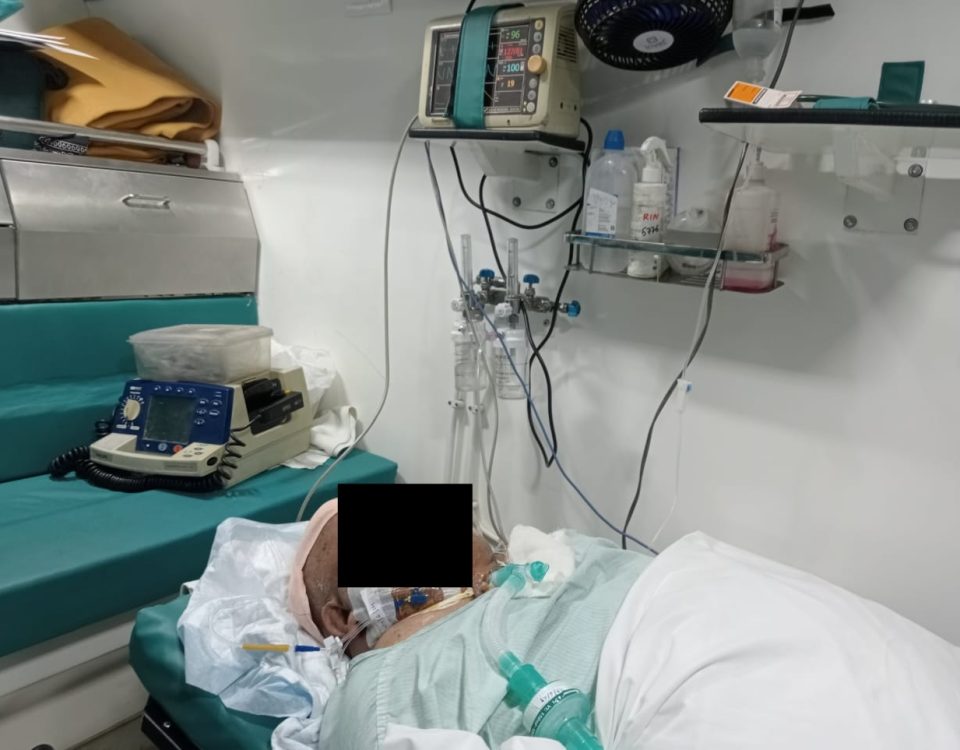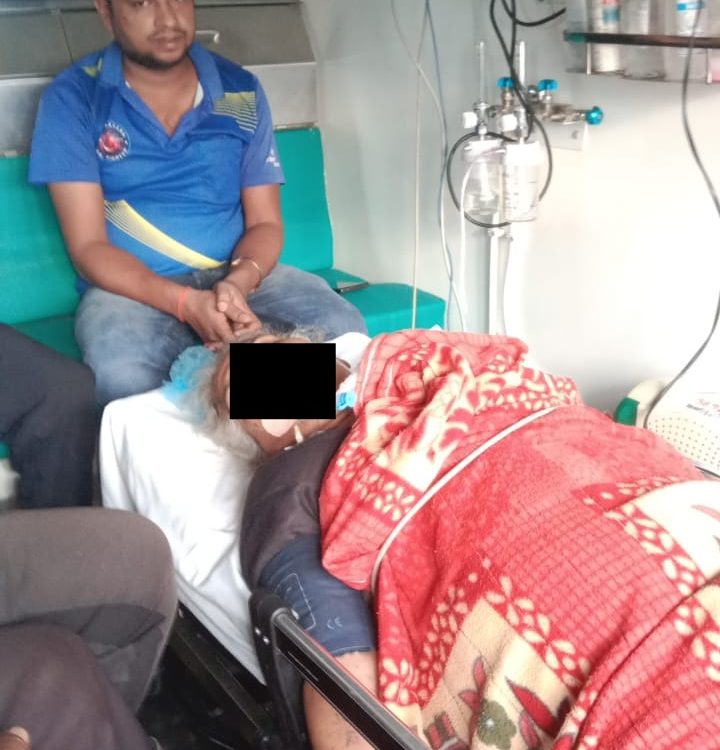What is the Lifesavers Train Ambulance Service?
The Lifesavers Train Ambulance Service provides swift and efficient medical transport for critically ill or injured patients using the extensive Indian Trains network. This service ensures timely access to specialized healthcare facilities, particularly for patients in remote or underserved areas.
How does the train ambulance service work?
1. Emergency Call: The process begins when a patient or caregiver contacts Lifesavers through the emergency hotline.
2. Assessment: A Lifesavers medical coordinator assesses the patient’s condition to determine the necessity for train ambulance transport.
3. Coordination: Lifesavers arranges logistics with Indian Trains, ensuring a suitable train and compartment for the ambulance setup. Coordination with the receiving hospital is also established to prepare for patient admission.
4. Dispatch: A fully equipped train ambulance, complete with ICU facilities, is dispatched with a dedicated medical team.
5. In-transit Care: Throughout the journey, the patient receives continuous monitoring and treatment from the medical team, ensuring stability and addressing any emergencies that may arise.
6. Handover: Upon arrival at the destination, the patient is smoothly transferred to the designated hospital for further treatment.
Which hospitals in Guwahati are Lifesavers partnered with for train ambulance services?
Lifesavers collaborates with several leading hospitals in Guwahati to provide seamless transitions from transport to treatment:
Guwahati Medical College and Hospital: Specializes in trauma and emergency care.
Apollo Hospitals Guwahati: Known for its advanced cardiology and neurology departments.
Dispur Hospitals: Renowned for its critical care and orthopaedic services.
Down Town Hospital: Offers comprehensive healthcare services, including oncology and paediatrics.
What makes Lifesavers train ambulance service unique?
Speed: The service avoids road traffic, ensuring faster transport to medical facilities.
Reach: The train network allows access to remote and rural areas, connecting them with major medical centres.
Comfort: The train ambulance is equipped with advanced life-support systems, ensuring patient comfort and safety.
Efficiency: By using trains, the service reduces the strain on road ambulance services and provides a cost-effective alternative to air ambulance services.
What type of medical equipment is available in the train ambulances?
Lifesavers train ambulances are outfitted with state-of-the-art medical equipment, including:
Advanced Life-Support Systems (ALS): For comprehensive emergency care.
Cardiac Monitors and Defibrillators: To manage cardiac emergencies.
Ventilators and Oxygen Supply: Ensuring respiratory support for critical patients.
Emergency Medications and Intravenous Fluids: For immediate treatment needs.
Portable Incubators for Neonatal Transport: Providing specialized care for newborns during transport.
How can I book the train ambulance service?
Booking the Lifesavers train ambulance service is straightforward:
Call the Lifesavers emergency hotline: Provide details about the patient’s condition, location, and destination.
Assessment: The Lifesavers coordinator will assess the situation and guide you through the necessary steps.
Confirmation and Coordination: Once confirmed, Lifesavers will handle all logistics and coordination with Indian Trains and the receiving hospital.
How does Lifesavers ensure the quality of care during train transport?
Lifesavers maintains high standards of care during transport by:
Employing Highly Trained ICU Specialists, Paramedics, and Nurses: Ensuring expert medical care throughout the journey.
Utilizing State-of-the-Art Medical Equipment: Providing all necessary tools to manage any medical situation.
Continuous Monitoring and Treatment of Patients: Ensuring patient stability and immediate response to any changes in condition.
Coordination with Receiving Hospitals: Ensuring a smooth handover and immediate continuation of care upon arrival.
Why should I choose the train ambulance service over road or air ambulance services?
Speed: Avoids road traffic and ensures faster transport times.
Cost-Effective: More affordable than air ambulance services while providing comparable care.
Accessibility: Ideal for long-distance transport, connecting remote areas with major medical centres.
Comfort: Equipped with ICU-level care, providing a stable and controlled environment for critically ill patients.
What should I do in case of a medical emergency requiring train ambulance transport in Guwahati?
Remain Calm and Call Lifesavers
Emergency Hotline: Provide clear and concise information about the patient’s condition and location.
Follow Instructions: The Lifesavers coordinator will guide you through the necessary steps to prepare for transport.
Prepare the Patient: Ensure the patient is ready for transport as advised by the Lifesavers medical team.
Who can I contact for more details about the train ambulance service in Guwahati?
For more detailed information or to book the train ambulance service, contact Dr. Pradeep Gupta, ICU specialist, who can provide comprehensive details and assistance.






